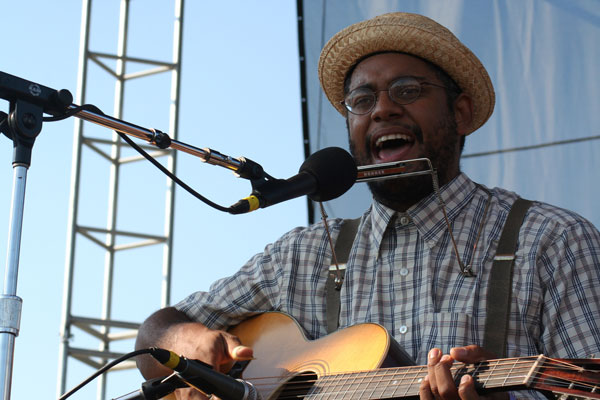
BY MICHAEL LYDON michaelydon.com | The first wave of 1960s Greenwich Village folk music was all acoustic: unamplified flattop guitars, banjos, dulcimers, harmonicas and the occasional standup bass. The groups were small — many solos and duos, a scattering of trios and a few rare quartets. Drums? Never! Most of the folkies were college-age white kids. With a few exceptions, like young Richie Havens, black folkies were older ladies and gents brought out of retirement by the white kids who loved the raw sound of old-timey country blues. The Village’s top clubs: Folk City, The Bitter End and The Gaslight.
Then came the one-two punch that knocked that scene on its head. First, in the winter of 1964, The Beatles came, saw and conquered the American pop music charts — and, with them, the ears, hearts and minds of millions of young Americans. Second, in the summer of 1965, Bob Dylan played the Newport Folk Festival with an electric band. Folkies booed him, but there was no erasing the writing on the wall. The sound of the 60s was destined to be screaming electric guitar quartets and quintets, with booming electric basses, slam-bam drums, hot miked vocals and everybody’s amp turned up to eleven. Folk City and the other old clubs didn’t go out of business, partly because they began adding rock bands to their lineups — but the new sound needed a new club, and that club was the Café au Go Go.
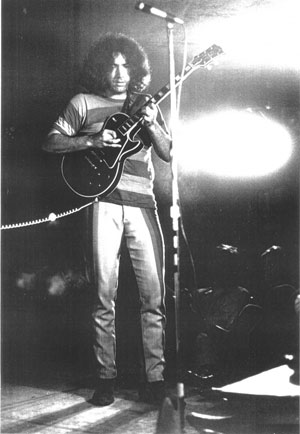
A French-themed coffeehouse in the roomy basement of 152 Bleecker Street, Café au Go Go opened on February 7, 1964, after a long legal battle with the New York City commissioner of cabaret licenses (the city never stopped trying to “clean up” the funky McDougal-Bleecker club scene). The Café owners, Howard and Elly Solomon, he a stockbroker, she a fashion designer, finally got a no-liquor cabaret license and booked their first headliner, Professor Irwin Corey. Six money-losing weeks later, hoping to stave off bankruptcy, the couple booked the popular comedian, Lenny Bruce, for a six-week stand.
Two nights into the run, however, the NYPD arrested Bruce and Howard Solomon on obscenity charges, and the two spent a night in jail. Out on bail, Bruce returned to the Café stage the next night. This time, he and Elly Solomon were arrested. Trials and convictions soon followed. For six years, the Solomons fought to overturn the judgments and, four years after Bruce died, they won a landmark freedom of speech ruling from the New York Supreme Court. More immediately, the arrest and attendant press coverage put the Café au Go Go on the Village’s music club and coffeehouse map.
The Café steadily championed the new sounds of the 60s. Paul Butterfield’s electric blues band played the first of many Café gigs in July 1965. Bossa nova guitarist Luis Bonfa came that October. Oscar Brown Jr. and the Fugs arrived in 1966. In February 1967, the Jefferson Airplane flew in from San Francisco, in July the Grateful Dead — the first East Coast bookings for both bands. That October, Eric Clapton’s Cream came over from London. Other Café headliners: B.B. King, Muddy Waters, Howling Wolf, Steven Stills, Blood Sweat and Tears, the Mothers of Invention and comics George Carlin, Richard Pryor and Lily Tomlin.
Jimi Hendrix was still Jimmy Hendrix — and known only to rock cognoscenti — when he played two summer weeks at the Café in 1966 with blues guitarist John Hammond. The Rolling Stones came to hear him one night and, wrote a Hendrix biographer, were “stunned” by his “feedback sounds balanced against dissolving riffs.” Rock manager Chas Chandler came another night and convinced Hendrix to move to London where, within months, he became a star.
The Café au Go Go lasted just over five years. Today, a brick apartment building stands at 152 Bleecker. In its day, devotés called the Café “the hippest, the classiest” club on the McDougal-Bleecker row. Music lovers entered down a gently curving staircase to well-spaced tables and ordered exotic coffees and tasty food from friendly waitresses. The light and sound systems were worthy of an Off-Broadway theater — and the red brick walls gave the room acoustics so good that Stan Getz, the Blues Project and many other bands recorded live albums there. “Let’s face it,” says one former patron, “some of the Village music clubs were clip joints, but the Café was cool — great music and great atmosphere.”
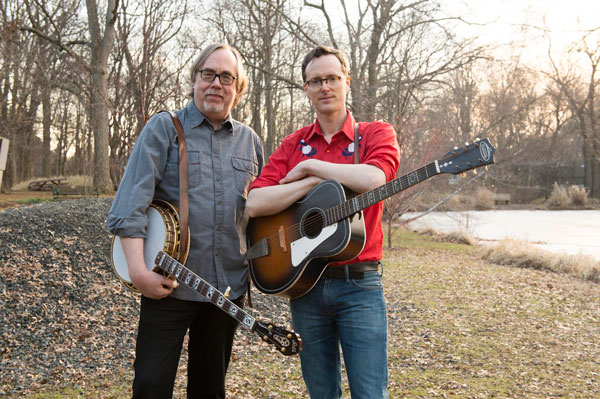
“I loved the Café au Go Go,” says multi-talented musician and composer David Amram, who still performs at Cornelia Street Café and other Village settings (and will perform at the Revisited series on April 17). “The Café was my University of World Music, because the Solomons didn’t limit who they booked by genre. I played there with the great jazz pianist Bill Evans, with Richie Havens, with Odetta and with a great banjo player, Charlie Chin. Sometimes I was booked, sometimes I got asked to sit in. The place felt like a musical oasis. Everyone was open, nobody felt uptight.”
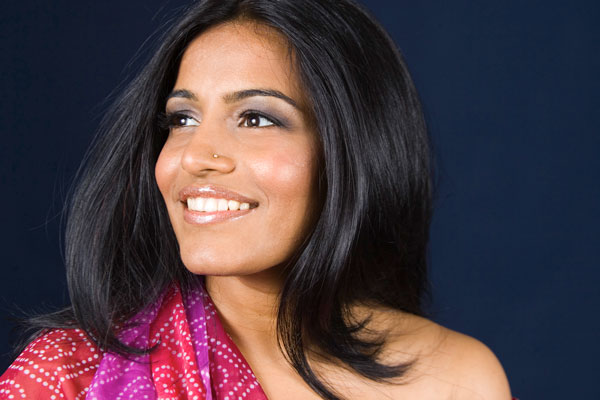
To celebrate the Café and its pioneering history, the Greenwich House Music School has planned a two-month festival — Café au Go Go Revisited — that opens Monday, February 24, most appropriately, with impressionist Steve Cuiffo re-enacting a Lenny Bruce comedy monologue, and continuing with a wide variety of concerts every Thursday night, from March 6 through April 24.
“Café au Go Go Revisited pays homage to the ingenuity and imagination of a former musical neighbor,” says Rachel Black, the Music School’s director. When Black became director last June, after years producing a wide variety of shows at Central Park’s Summer Stage, she found the school had only an “off and on” concert program. “Concerts can do so much to connect a music school with its community,” Black pointed out in an interview, “and the more I learned about the Village club scene, especially the Café, I knew I wanted to honor the artistic history of the Greenwich Village 60s. That was a booming time, culturally and counter-culturally, and the performers at this inaugural music festival reflect the 60s spirit that’s still the heart of all we do at Greenwich House.”
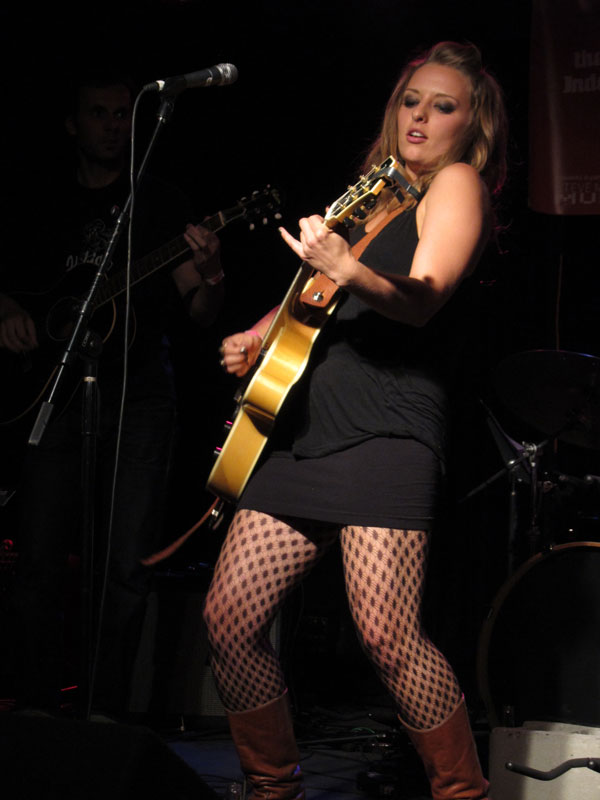
All the Café au Go Go Revisited shows will take place at the Greenwich House Music School’s Renee Weiler Concert Hall, an intimate room with excellent acoustics and a pair of Steinway grand pianos.
Series curator Jennie Wasserman, previously of Carnegie Hall and Joe’s Pub and currently a Jazz at Lincoln Center programmer, has assembled an impressive lineup of artists that ranges from blues and gospel to global music, Middle-Eastern psych-rock, bluegrass and country, chamber pop, bossa nova, jazz, soul and R&B.
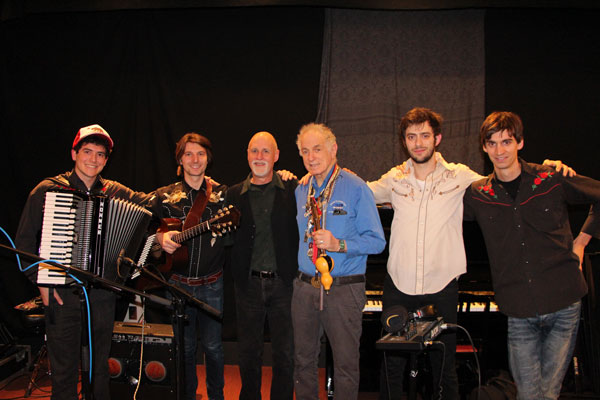
“Over the past fifty years, international pop music has developed new complexities,” says Ms. Wasserman. “With this festival’s lineup, I’m trying to stay true to the eclectic booking that made every night at Café au Go Go memorably innovative, and to highlight the musical landscape of New York today.”
Café au Go Go Revisited Performance Schedule:
For info, call 212-242-4770
Visit www.greenwichhouse.org/music_school/cafe-au-go-go-series-schedule
Opening Night: Mon., Feb. 24 at 8pm
Then, Thurs. at 8pm: March 6 through April 24
At Greenwich House Music School
46 Barrow St. (west of Seventh Ave.)
Tickets: $20, $18 or $15 (varies for each show)
February 24: Excerpts will be screened from “Seven Years Underground,” a documentary on the history of the Café au Go Go (directed by Jason Solomon, son of the original Café owners), followed by a panel discussion with music historian Ashley Kahn, Bleecker Street guitar store owner Matt Umanov, Terri Thal (who managed folksingers during the 1960s) and composer-performer David Amram. The opening night event concludes with a live re-enactment, by Steve Cuiffo, of a Lenny Bruce monologue.
March 6: Dom Flemons and Eli “Paperboy” Reed make their formal debut as a live duet, in this evening of acoustic blues, gospel and country favorites.
March 13: Falu, a Mumbai-born singer known for her fusion of rock, jazz, funk and traditional Indian music, explores the classical side of her musical heritage.
March 20: Pharaoh’s Daughter brings psychedelic and pop sensibilities to their blend of Hasidic, Middle Eastern, African, Eastern European and Mediterranean influences.
March 27: Michael Daves and Tony Trischka will play new and traditional bluegrass music (including excerpts from Trischka’s new album, “Great Big World.”).
April 3: Julia Haltigan, a New York native, will present modern songs in the West Village singer-songwriter tradition.
April 10: “Getz Au Go Go” Revisited: With the influential Stan Getz album “Getz Au Go Go” as inspiration, New York’s top Brazilian musicians will explore highlights of 60s bossa nova.
April 17: David Amram and The Amigos Band. “Renaissance Man of American Music” Amram returns to his Village roots, alongside his newest quartet of collaborators.
April 24: Deva Mahal. The daughter of folk-blues legend Taj Mahal performs blues and R&B grounded in the 60s Southern Soul tradition.



































